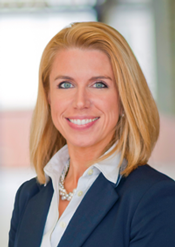

Whitney Hauser, OD, says that specialization is quite natural in practices with multiple doctors. “Ophthalmology mastered this years ago with cornea, retina and glaucoma specialists electing to practice together. Their cohesion doesn’t water down their specialization,” she says. even solo optometry specialists can survive and thrive, she says, noting that vision therapists, low vision specialists and sports vision doctors can capitalize on their unique offerings.
“Of course, drilling down in eye care narrows your patient base significantly,” she adds. “Marketing and solicitation of referrals must be directed. Casting a wide net will reap few rewards. Before breaking ground on a specialized practice, careful analysis of demographics and community demand are mandatory. While passion tends to drive doctors into a particular specialty, diving in recklessly will lead to inevitable failure.”
Dr. Hauser, who is clinical development consultant at TearWell Advanced Dry eye Treatment Center at Southern College of Optometry (SCO), says that she spent the first decade of her career trying to cover as many bases as she could, serving a diverse patient base that included surgical and ocular disease cases. In 2013, when she turned to academia as an assistant professor at SCO, she set a course for dedicating herself to ocular surface disease. “That singular focus pushes me to examine my patients with a more critical eye and keep current with emerging technologies and therapies. It also reassures patients that they are in a location devoted to their complaint. It’s a luxury to direct attention to one condition. Singular focus is required to become a content expert at any profession,” she says.



